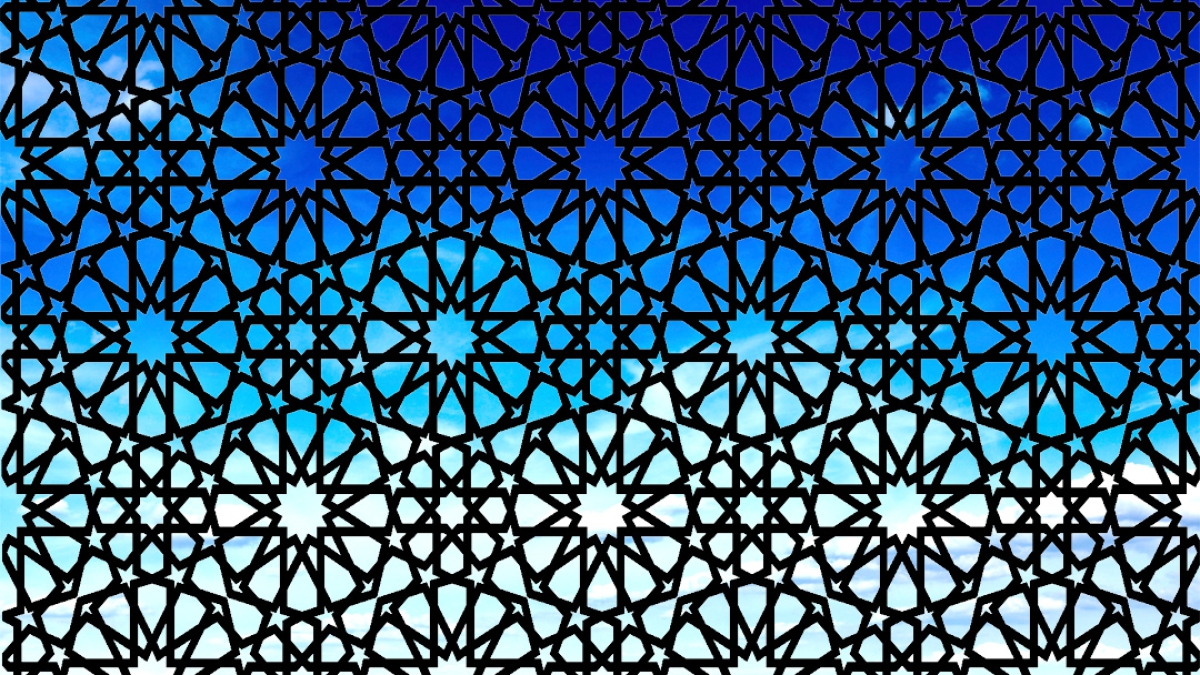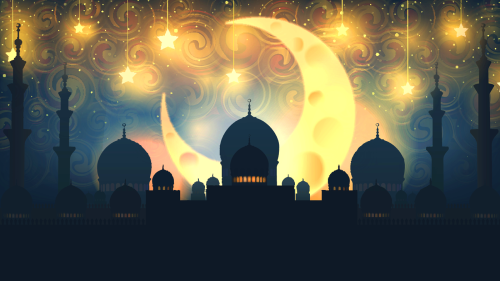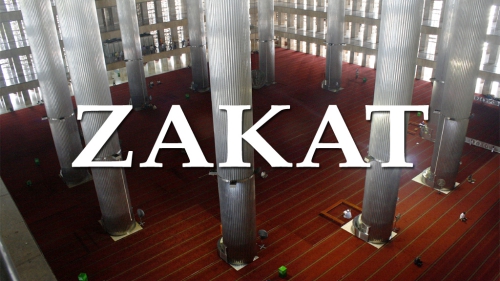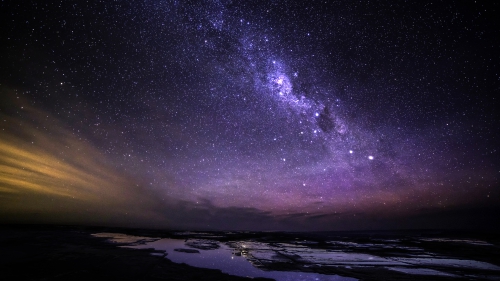Ramadan with an American Twist

Aaliyah Turner used to light up the scoreboard for the Emmanuel College women's basketball team - even while observing the Islamic month of Ramadan. She would go all day without food and water until halftime, when the sun set. So during this year's observance, playing a pickup game of basketball with a youth team organized through her mosque seemed to be no big deal.
"If I weren't fasting, I'd feel like I'd probably miss more shots because I'm out of sync," Turner says.
Muslims in the United States face special challenges in celebrating their holy month, which in 2006 began Sept. 23 and ends Oct. 22. While Muslims in the Islamic world revive the daily rhythms of Ramadan - streets empty at sunset, families congregating for Ramadan dinners, or iftars, and later heading to the markets to drink tea until the wee hours of the morning, comfortable in the knowledge that they can sleep late because others will, too - Muslim-Americans have to adjust Ramadan to the beat of American life.
In the process, they're creating Ramadan traditions with a distinctly American flavor - whether it's fasting in the heat of competition, eating takeout for iftar, or breaking fast with Christians and Jews.
"The Muslim experience in America is one of trying to conform to the way society around us runs," says Shahed Amanullah, who runs zabihah.com, an online guide of restaurants that conform to Islamic dietary restrictions. "In a Muslim country, everybody breaks their fast at the same time, so business conforms to that. But in America, we have to conform to a different schedule."
Omar Ahmad, for example, a technology worker in Silicon Valley, is often still at work at sunset. So he drives to the nearby Yaseen Center mosque in Belmont, where iftar is served, and gets his meal to go. He eats it at his office - a ritual performed by dozens of Muslims who work in Silicon Valley.
"That's when you can tell who all the bachelors are," he jokes, adding that mosque officials don't mind the eat-and-run.
Saira Sufi grew up in Topeka, Kan., accustomed to home-cooked iftars with family, but had little trouble adjusting to breaking her fast when she took a job on Capitol Hill, mainly because she could share the experience with Muslim colleagues. But since taking a job two years ago with the Civil War Preservation Trust, where she is the only Muslim, Sufi confesses to missing the sense of community. "I love breaking fast with other Muslims, but if you can't, you just accept it."
Rather than lamenting, however, Sufi has turned her solitude into an opportunity to contemplate God - another practice encouraged during Ramadan. "When you're on your own, you reflect a little more," she says.
While Muslim-Americans like Sufi have adjusted Ramadan to American life, more Americans have also become increasingly aware of Ramadan, and have sought to accommodate Muslims. For example, at Harvard University in Cambridge, Mass., the prayer hall stays open late to accommodate students praying Taraweeh, special prayers performed only during Ramadan. And many employers are letting Muslim employees slip out at sunset so they can break their fast.
Many Muslim-Americans, meanwhile, are using Ramadan as a chance to reach out to the larger community. Since the 1990s, Sufi's father, Ashraf Sufi, has frequently invited non-Muslim neighbors to his home for iftar. After the 9/11 attacks, the need for interfaith dialogue became more urgent, and Dr. Sufi and his colleagues expanded the iftars through the Islamic Center of Topeka. The interfaith iftars have since become "like a tradition," Sufi says, drawing about 70 people, including Jews, Christians, Buddhists, and Bahais.
"If you don't meet people, you stay in your own shell, and that just breeds suspicion," he says.
Indeed, according to the "Fatwa Bank" at IslamOnline.net, a conservative Web site, Muslims are encouraged to share iftar with non-Muslims. In response to a question from Pakistan, the Fatwa Bank said: "It is an intelligent and impressive idea to organize iftar with non-Muslims."
Along with diversity, the nation's penchants for volunteering and technology have also influenced the way Muslim-Americans observe Ramadan. For example, Nabila Mango, a San Francisco social worker, says the annual iftar she has organized for the past six years for the city's Tenderloin district, draws some 100 volunteers. "The volunteers are really a picture of the Bay area: Muslims, Jews, Christians, straight, gay, everybody," Mango says.
And Omar Mozaffar, an Islamic studies student at the University of Chicago, has taken up blogging to reflect on the meaning of Ramadan. It also helps overcome a typically American dilemma: "In our society, Muslim or not, we are alienated from each other, and blogging helps people connect and share ideas," he says.
Jamil Abdullah, who coaches a basketball team sponsored by Masjid Al-Quran, a Boston mosque, believes Ramadan in America is too diverse to be labeled an American Ramadan.
"I wouldn't say it's our own unique Ramadan. I would say everybody's Ramadan is unique," he says. "There's not this Ramadan, or that Ramadan. It's just Ramadan, your Ramadan."
Topics: Eating, Iftar, Ramadan, Sufism
Views: 20858
Related Suggestions
Ramadhan kareem my brothers and sisters in Islam in the us. I am wishing us Allah's favours during and after this fasting and always.In my country breaking of fast is always joyous and indeed happy moments but our problems are always power outages as such we miss the joy of watching live tarawee prayers from Makkah.But alhamdullillah to know that there are alot of practicing muslim in the US and this is very encouraging as Islam is not the religion of the less previlaged after all.Please keep up the sprit and we are always praying for Allah's protection. Ma'assalam.
Muhammad Sani M Sulen-jebu
Dear Brother Clement Ferhad, Brother Siddiq, and Bro. Salem, Happy Ramadhan to all of you.
Brother Clement,
In the many good years of my life, in London, Ramadhan is a month of a hive of good activities, especially at the mosques. And I'm delighted to know that at New York, the Iftars are now welcoming the people of other faith. A good move brothers, for it will create a better understanding among all of us. How I wish that I could be in New York experiencing the Iftars with some of you.
But any way our Ramadhan spirit worldwide is as strong as ever, where ever we are.
Wassalam.
As-salam-alai-kum,
Ramadam Mubarak!
What is this saying of American Muslims and the Muslims' experience in America? The Sharia affecting the Muslims, whether in America, Africa Canada, etc., remains the same. We are not trying to conform to the society around us. We have established, some of us, an Islamic way of life
and by the Grace of Allah, we have no complaints! Shahed's comments is out of context!
The Muslims living in Queens of New York, come together and do our Iftar as we would have done back home. We congreate at masjid Darus-salam, and at masjid Al-bid-Din, among several other masjids in and around the area. Someone need to visit these places of whorship to experience what
it is to be Muslims!
Our lives, even though punctuated by the evils of a society which can be extremely harsh at times, have remained Islamically cultured and we strive to acheive the best Islamic standard for the entire community!
Admittedly, the Muslims in America face multi-challenges with respect to the practise of the religion of Islam. But we make time for ALLAH. We must!
The homely crowd of cousins, fathers, mothers, nephews, and others as we are accustomed to, may be different since we some of us do not have all of our relatives in America. But we are among Muslims. Why make the best of this beautiful month?
I invite you to come to Queens and experience the estacy of being a Practising Muslim!
And yes, we are all Muslims, and Ramadan is Ramadan. And we are servants of Allah!
Sincerely,
Clement.
Ramadan Mubarak
I thank you for that last comment in the article. Ramadan is not changing or conforming to anything. Ramadan is the month that The Qur'an was revealed and in this monty Allah says we should spend it in fasting. Muslims will express their appreciation for Ramadan in different ways all over the world. To say that Ramadan is changing begs the question from what? There is no standard in the world on how Ramadan should be celebrated. It's Ramadan that is influencing society not the other way around.
we use to have huge halal catering by our company. and a seperate praying room all year round.
i think it is still the same this year.
i think west coast usa is very different from east coast. in the west people are more relaxed and broad minded , i think due to hippy culture, flower power etc etc.

















